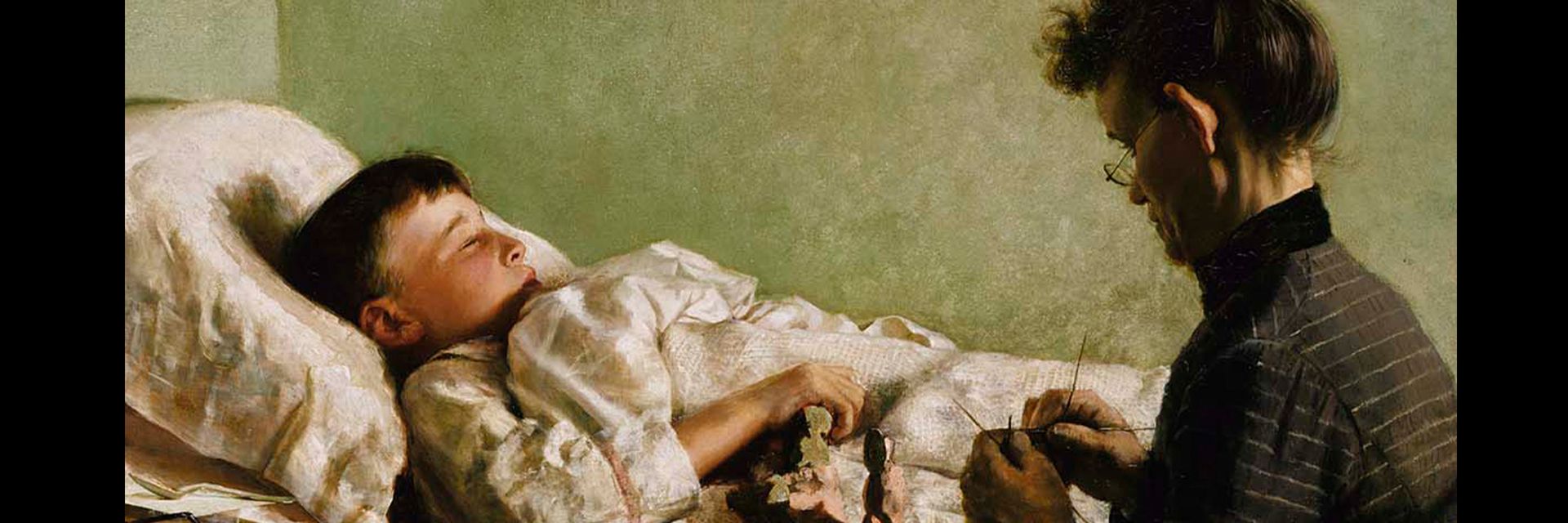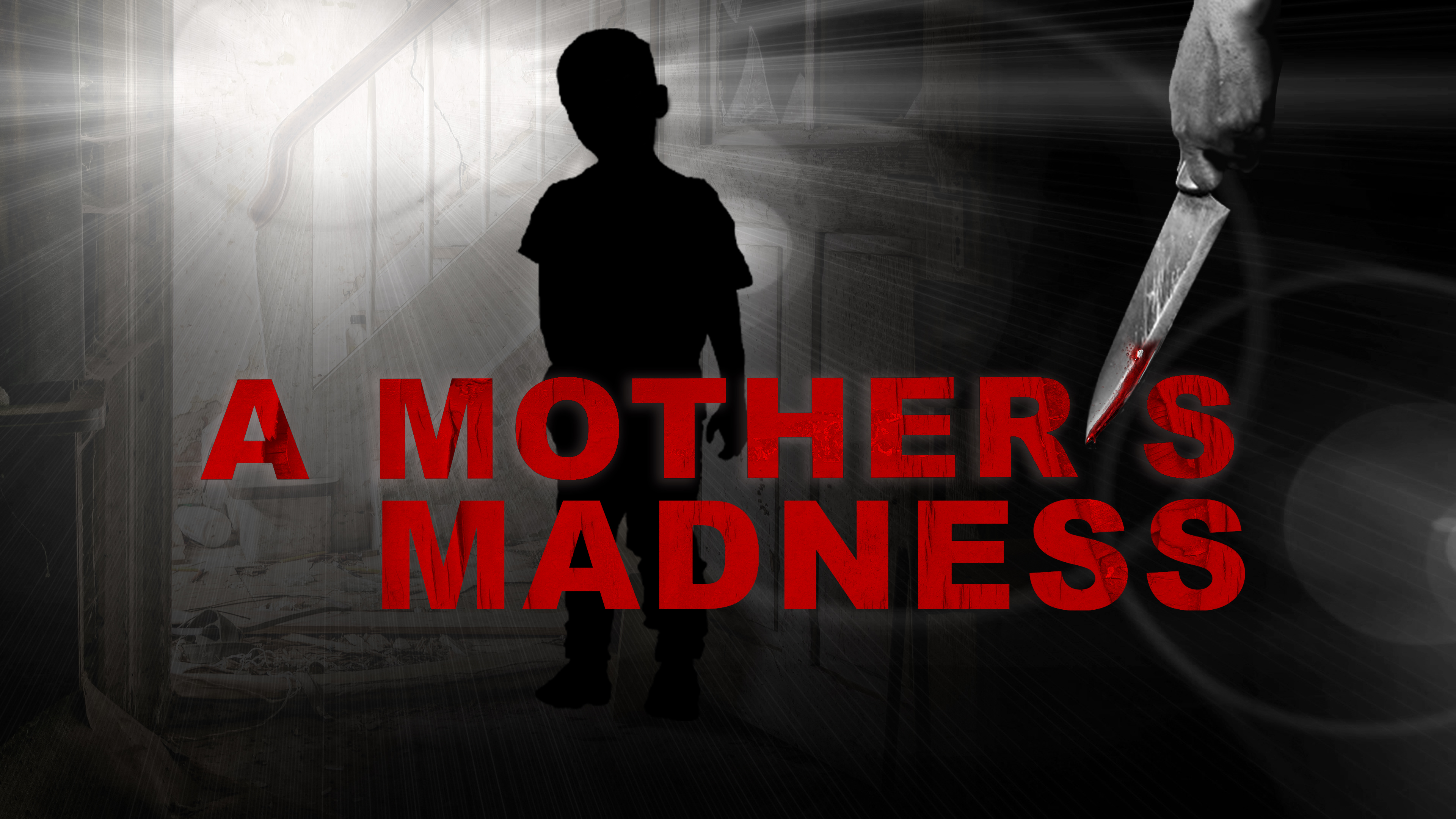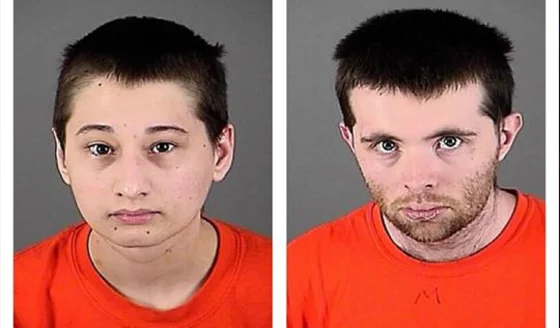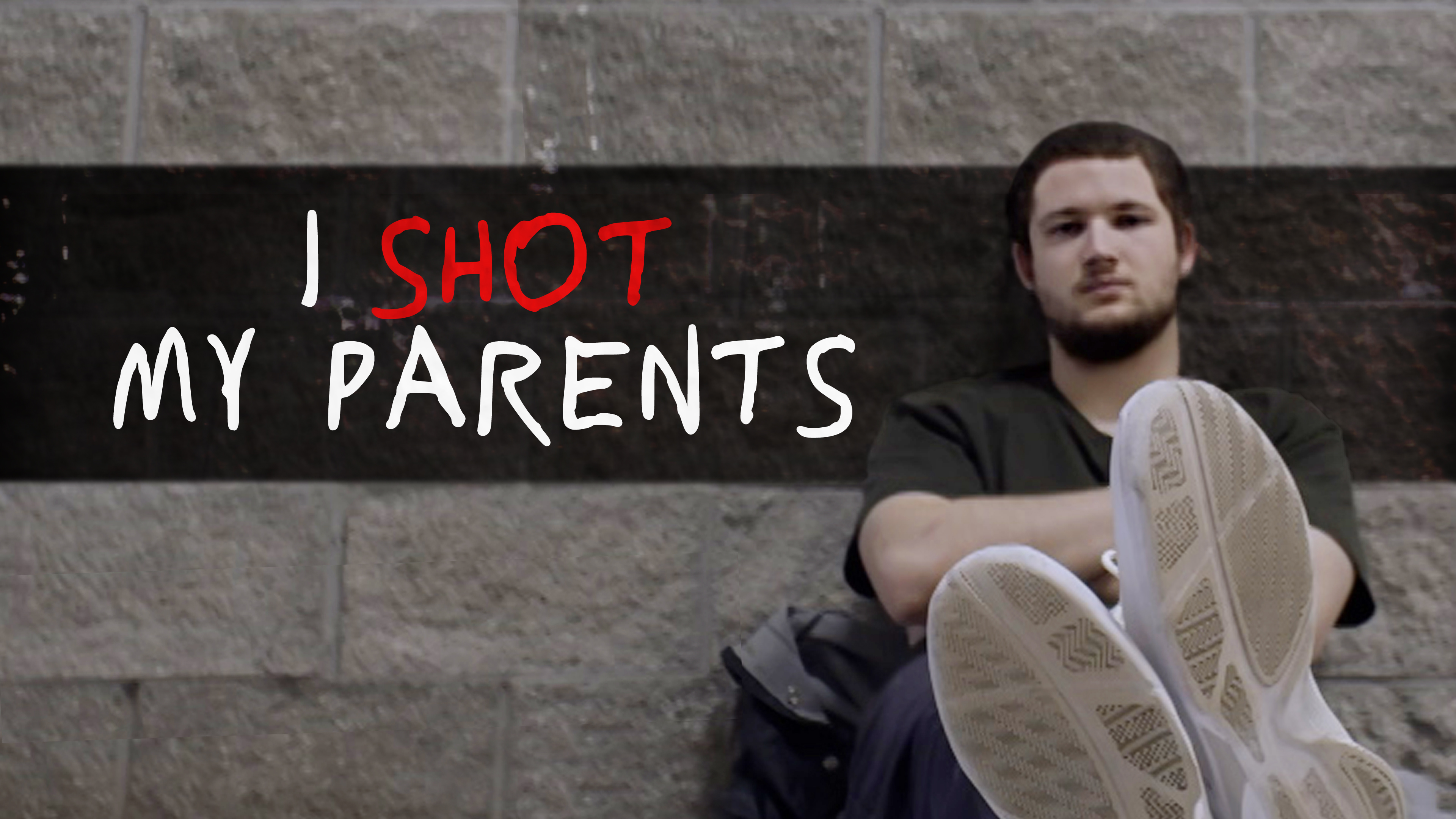Since Gypsy Rose Blanchard’s release from prison for second-degree murder, the case – and the disturbing condition at the root of her story – continues to fascinate.
◊
For those well-versed in true crime, Gypsy Rose Blanchard – who, in 2016, was convicted of killing her mother, Clauddine “Dee Dee” Blanchard – is practically a household name. Gypsy’s early release from prison in 2023 has sparked renewed interest in one of the most alluring crime stories ever to unfold. Her case compels both because of the taboo nature of Gypsy’s crime, and the perplexing mental health syndrome that set Dee Dee’s murder in motion.
Meet the Blanchards
In the early-to-mid 2000s, anyone encountering young Gypsy and mother Dee Dee Blanchard would likely feel compassionately toward the endearing pair. Confined to a tiny wheelchair, impish Gypsy spoke with a high-pitched, squeaky voice, and adored all things Disney. Dee Dee, for her part, was cheerful, gregarious, and appeared ever-devoted to her medically fragile child. As Dee Dee would readily explain, Gypsy’s ailments were varied and severe. They included muscular dystrophy, epilepsy, asthma, allergies, and leukemia; Gypsy had suffered through numerous surgeries, including the removal of her salivary glands and teeth.
The Blanchards, on their own since Dee Dee’s split from Gypsy’s father (he did continue to pay child support), had endured more than their share of suffering. But, in 2005, after their Louisiana home was destroyed by Hurricane Katrina, things were looking up. Upon relocating to Missouri, they were provided with a new home through Habitat for Humanity, which was followed by an appearance on local news. After that, Dee Dee and Gypsy began receiving monetary donations from the public. They were also gifted with concert tickets and a trip to Disney World through the Make-a-Wish foundation – a short respite from Gypsy’s suffering. Except, there was one problem: Gypsy’s myriad health issues were all a fabrication; in reality, she was a perfectly healthy child.
What leads a mother to murder her children? Watch A Mother's Madness for a compelling perspective.
‘Self-Defeating in the End’
Munchausen disorder and Munchausen by proxy are “factitious disorders characterized by fabrication or induction of signs or symptoms of a disease, as well as alteration of laboratory tests.” Munchausen was formally identified in 1952 by Dr. Richard Asher, who coined the name after the famed fabulist Baron Munchausen. In 1977, English pediatrician Roy Meadow first used the term Munchausen by proxy (abbreviated as MBP) to describe cases when a person fakes symptoms of illness in someone under their care. (In 91 percent of the cases, the perpetrator is a mother and her child is the victim.
Munchausen disorder and Munchausen by proxy are now formally known as “factitious disorder” and “factitious disorder imposed on another.” For clarity, we will use the more familiar terms and occasionally ‘medical child abuse.’
While the condition is rare and difficult to diagnose, there have been numerous instances of a mother being charged in criminal court for medically abusing her child. In the U.S., the first of these cases was that of Priscilla Phillips who, in 1981, was convicted of making her children sick via sodium poisoning, resulting in the death of one child.
Other trials have followed, including the 2003 case of Arizona mother Blanca Montano, caught on tape putting fecal matter in her daughter’s IV; and the 2015 case of Lacey Spears, convicted of poisoning her son with table salt. Without a doubt, many more instances of MBP (of varying levels of severity) have remained undetected and in the shadows.
But why would someone fake illness, much less pretend that a child under their care is sick?
According to Dr. Marc Feldman, a psychiatrist, author, and internationally known expert in MBP, those with MBP are typically motivated by a desire for “attention and sympathy from medical professionals and/or those in their community.” Comorbid mental health conditions like depression and borderline or narcissistic personality disorders, are usually present. “[These conditions] make them feel desperate and out of control in their private lives, and certainly MBP is a desperate behavior,” Feldman told MagellanTV. “These are long-term, unhealthy patterns of behavior that tend to be self-defeating in the end,” Feldman said.
And, in the end, nothing could have been more “self-defeating” for Dee Dee Blanchard.
Gypsy Plots Her Escape
In 2011, Gypsy Rose was 19 years old – although Dee Dee, having earlier fabricated a birth certificate, claimed she was four years younger. Since Gypsy was homeschooled, there was no teacher, counselor, or school administrator to intervene or protest on her behalf. But when a neighbor introduced Gypsy to the Internet, it would serve as a portal to a new potential reality.
Gypsy had a brief relationship with an older man she met at a comics convention. Though Gypsy was legally an adult at the time, Dee Dee, furious, informed him she was a minor, and the relationship ended.
When Gypsy Rose was 24, she met 26-year-old Nick Godejohn on a dating site. Their relationship eventually evolved from flirtation to exchanges of racy messages and videos. Gypsy also revealed to Godejohn the truth: Since she was a small child, her mother had forced her into pretending she was ill, disabled, and unable to function without Dee Dee’s constant assistance. Dee Dee had also become increasingly physically violent.
Godejohn assured Gypsy that he would help her to escape from Dee Dee’s control. The two initially hatched a plan to attend a showing of Cinderella and “meet cute” in front of Dee Dee. They hoped that Dee Dee would take a liking to him and greenlight their relationship. (It should have come as no surprise that she didn’t.)
From this point, Gypsy and Godejohn began to see only one path forward.
A Justifiable Homicide?
On June 9, 2015, Godejohn traveled from Wisconsin to Missouri and lay in wait until Dee Dee fell asleep. Gypsy then hid in the bathroom while Godejohn stabbed Dee Dee to death. Gypsy later stated that Dee Dee called out Gypsy’s name as she died.
After the murder, Gypsy wrote a Facebook post saying, “That Bitch is dead!” Police were notified and went to the house, finding Dee Dee deceased. Authorities then traced the IP address from Gypsy’s Facebook post and discovered Gypsy and Godejohn at his family home. Both were taken into custody and charged with murder and felony armed criminal action.
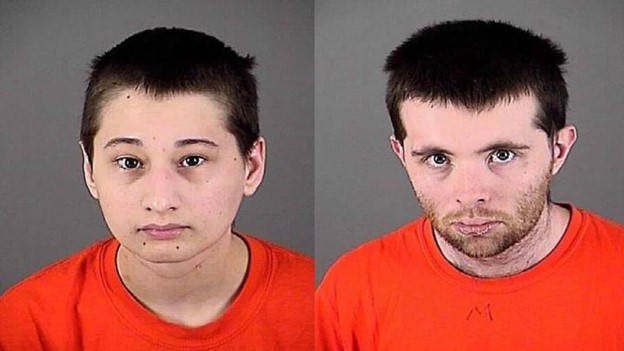
Gypsy Rose Blanchard and Nick Godejohn’s mugshots (Source: Greene County Sheriff’s Office)
Gypsy admitted to conspiring with Godejohn to murder Dee Dee; however, she claimed the crime was motivated by her need to escape confinement and abuse.
In July 2016, Gypsy entered into a plea deal with prosecutor Dan Patterson, who acknowledged that she was a victim of MBP. She accepted a second-degree murder charge, thus avoiding trial, and was sentenced to 10 years.
In November 2018, it was Nicholas Godejohn’s turn. His defense team claimed that, while he did murder Dee Dee, Gypsy coerced him. She took the stand, reiterating that she was desperate to break free from Dee Dee’s abuse and that she talked Godejohn into committing the crime. During cross-examination, however, she acknowledged that Godejohn had introduced her to “some dark fantasies,” including BDSM. Gypsy also confirmed Godejohn had requested she be nude when helping clean up the blood from the crime scene.
Godejohn was sentenced to life in prison and is serving his time at the Potosi Correctional Center in Missouri. He has spoken candidly to media outlets about his relationship with Gypsy and his role in the murder.
In ‘Secrecy and Deception’
Why didn’t anyone catch on to Dee Dee’s lies and contact authorities?
One neurologist suspected that Dee Dee had MBP. He never made a formal report, however. Someone else filed an anonymous report in 2009, which led to a visit by social services to Dee Dee and Gypsy’s residence. They determined nothing seemed awry in the household.
Like many others with Munchhausen by proxy, Dee Dee spoke convincingly about Gypsy’s health; after all, she was highly motivated to do so. Beyond receiving sympathy as a single mother caring for a sick child, Gypsy was practically a cash cow. Dee Dee’s one-time work as a nursing assistant may have also supplied her with enough medical knowledge to fool others.
In 17 percent of MBP cases, the perpetrators work in the healthcare field.
More broadly speaking, and according to Feldman, it’s not unusual to miss the signs of MBP: Most cases are overlooked. “This is a form of maltreatment that thrives in secrecy and deception, and most people would never think that a parent is inventing health problems.”
Even in cases where the condition is diagnosed, acceptance by the patient is hard to come by, which makes effective treatment unlikely. “The problem in attempting to offer any kind of psychological treatment is the denial in which the perpetrators virtually always engage,” Feldman says.
Failing to detect MBP is one thing. But what about performing unnecessary surgeries on a healthy child?
Gypsy Rose’s stepmother, Kristy Blanchard, has spoken about holding Gypsy’s doctors legally accountable, but she claims she has yet to find an attorney willing to take the case.
Communities on social media are similarly outraged that doctors haven’t been charged or censured. Most recently, they’ve expressed frustration that, while Gypsy Rose was subjected to years of child abuse, another child – named Maya Kowalski – was unjustly removed from her doting mother’s care. The circumstances of that recent case turned the typical MBP narrative on its head – and raised questions about potential overreach by medical institutions.
A Munchausen by Proxy Accusation Turns Tragic
Since she was a small child, now 17-year-old Maya Kowalski has suffered from an agonizing condition known as complex regional pain syndrome (CRPS). When Maya’s pain wasn’t relieved through more standard approaches, her mother Beata, a registered nurse, pursued an unconventional option; this involved Maya being placed into “ketamine comas” by a doctor located in Mexico. The family reported that the treatment was highly effective.
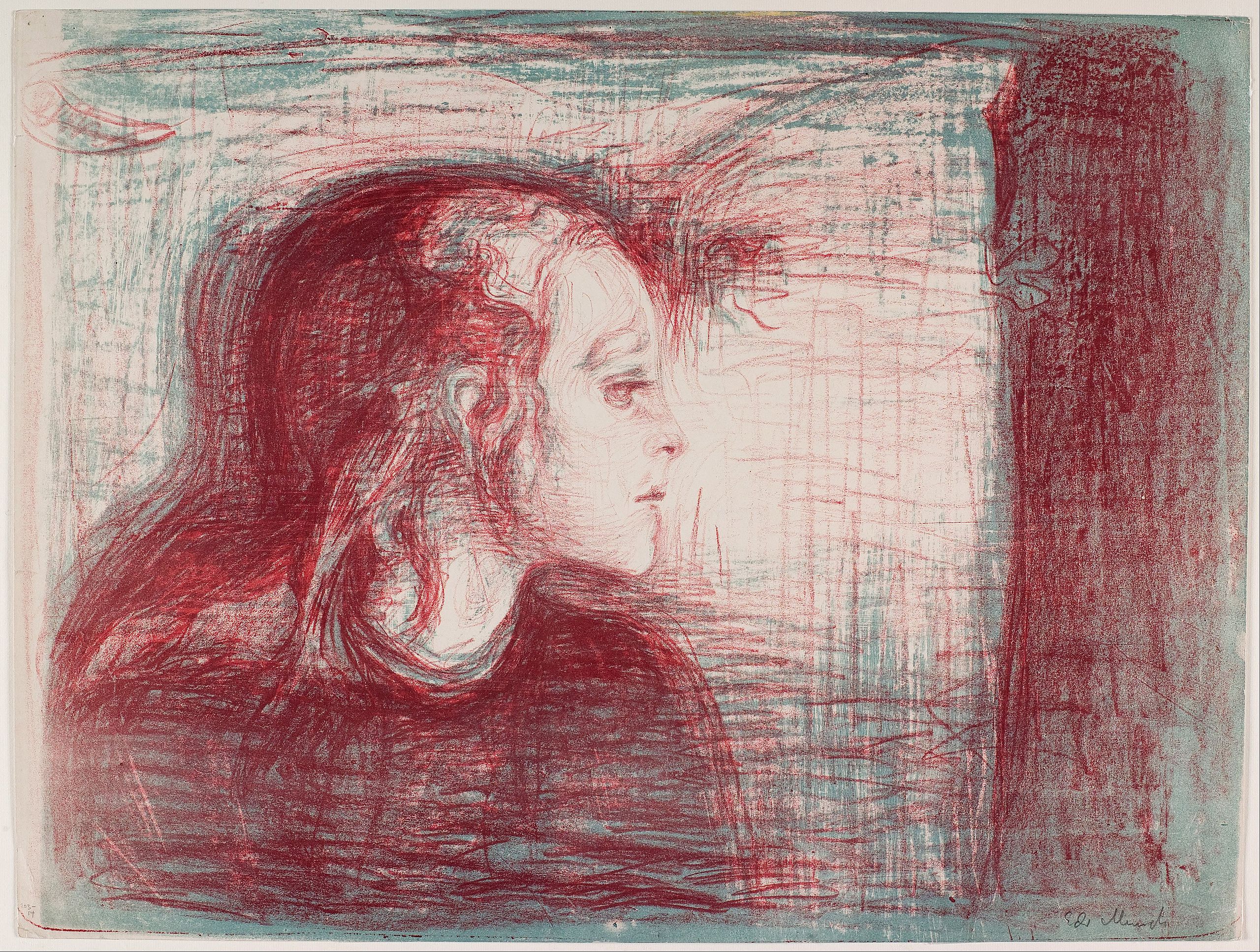
The Sick Child (detail), by Edvard Munch (Collection of Munch Museum, via Wikimedia Commons)
But in 2016, Maya relapsed and was hospitalized at Johns Hopkins All Children’s Hospital in St. Petersburg, Florida. Soon after her arrival, personnel developed concerns in response to what they perceived as Beata’s combative protectiveness over Maya, insistence on one course of (potentially dangerous) treatment when less invasive options were available, and signs that Maya’s complaints of pain increased in Beata’s presence. Dr. Sally Smith – a child abuse pediatrician – filed a report about Maya, offering a formal diagnosis of MBP. All Children’s made Maya a ward of the state, keeping her at the hospital for several months.
In 2017, Beata died by suicide. She left behind a message saying, “I no longer can take the pain being away from Maya and being treated like a criminal. I cannot watch my daughter suffer in pain and keep getting worse.”
Following Beata’s death, the Kowalski family filed a civil lawsuit against the hospital, alleging that JHACH had made an unfounded report of Munchhausen by proxy, which led to Beata’s suicide.
Rapper Eminem has made claims about being subjected to his mother’s MBP, even addressing it in his music.
The case went to court in the fall of 2023, lasting two months. Smith and other witnesses spoke in defense of JHACH, standing by their claims that concerns about Beata were justified, while the prosecution called their own witnesses and medical experts. In the end, the jury sided with the Kowalskis, and JHACH was ordered to pay the family $261 million in compensatory and punitive damages (later reduced to $213.5 million).
The grief-stricken Kowalski family found their justice. The case also laid bare potential repercussions for making claims of medical child abuse. While few would deny the negative impact of an accusation determined to be false, MBP is a real condition that decimates lives. Might fear of litigation deter conscientious healthcare workers from raising future, well-founded concerns?
Gypsy Is Free
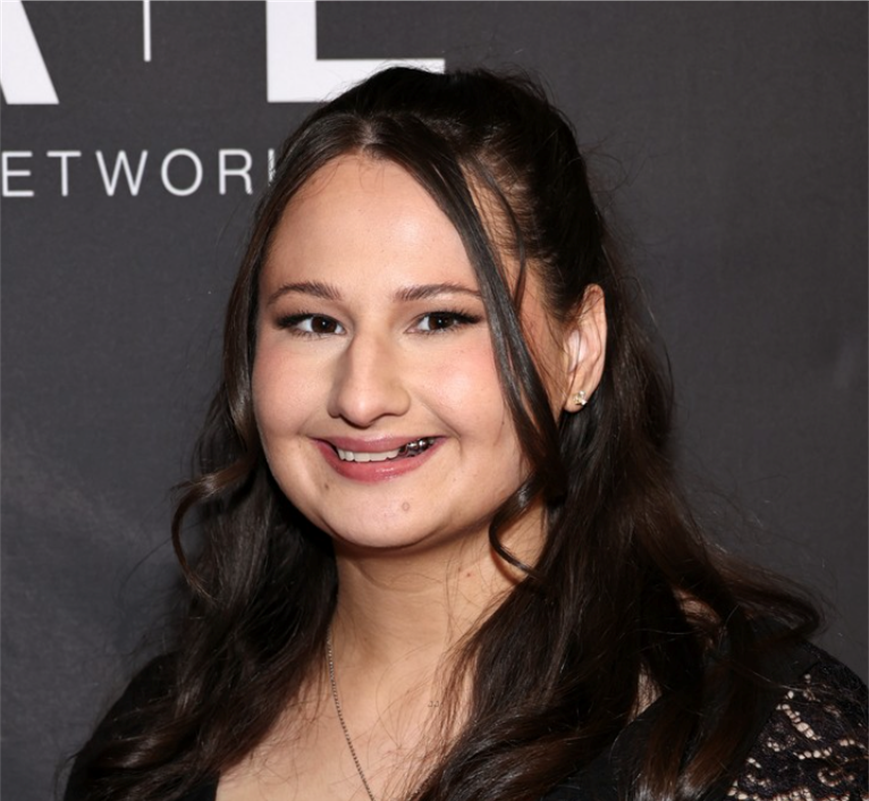
Gypsy Rose Blanchard (Credit: Biggly, via Wikimedia Commons)
Since her release from prison, Gypsy Rose has reclaimed her voice, going live on social media, posing for selfies, and appearing on talk shows. (There’s also a six-hour special called The Prison Confessions of Gypsy Rose Blanchard.) Now married to a man she began corresponding with in prison, she has served her time. It seems the fascinating saga of a young woman who committed, arguably, justifiable homicide will continue. Ultimately, if there’s one lesson to learn from the Gypsy Rose case and the tragic saga of Maya and Beata Kowalski, it may be this: One should never presume to fully know what unfolds behind another family’s closed doors.
Ω
Matia Query is a freelance writer and the editor of BookLife, the indie author wing of Publishers Weekly. She lives in New York’s Hudson Valley.
Title Image: The Sick Child (1893) by J. Bond Francisco (Collection of the Smithsonian, via Wikimedia Commons)
